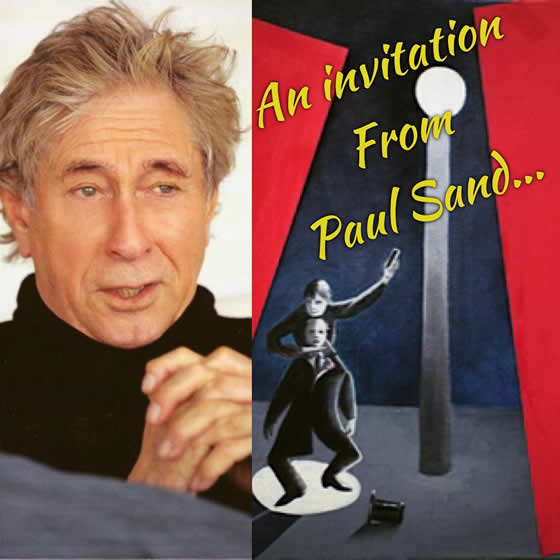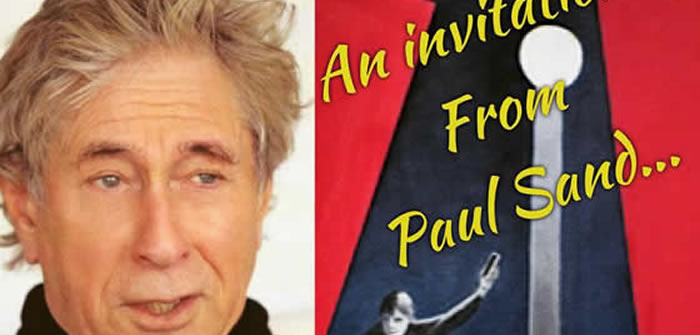 Paul Sand’s production of Kurt Weill at the Cuttlefish Hotel is a thrilling song cycle, an intense evening in the theatre, achieved through simple means.
Paul Sand’s production of Kurt Weill at the Cuttlefish Hotel is a thrilling song cycle, an intense evening in the theatre, achieved through simple means.
Paul Sand, who won a Tony Award, in 1970, for his multiple characters in “Paul Sills’ Story Theatre” began his career with Marcel Mrceau in the 50’s and went on to work with Judy Garland and the Broadway bound first company of Second City (“From the Second City” which played the Royale Theatre in 1961).
After years In films, sit-coms and Second City, there’s still a touch of the mime in Sand’s performance. Supple Sand adds delicate nuances to each moment he’s onstage.
Bent over to signal remorse, his one bloody red glove patting his chest, he’s as cursive as a fine manuscript hand. Playing the aged Mcheath, there’s much of the boy Ingenue on view.
His expressions are featherly, s faint smile haunts the corners of his mouth, even in his darkest lyrics and there are evocative crinkle lines in the corners of his eyes (think of the ink drawn portraits by Hockney.) Sands first appears on an overhead balcony, when not on stage he lurks menacingly on the edge of the stage and the corners of our minds.
Lanky brit actor Sol Mason crosses the stage in a broken cake walk, or mimes a caned soft shoe, as he reprises Song Of the Insufficency Of Man or intones the Solomion Song in Brechtian Sprechgesang (the expressionist spoke-sang technique), If there’s any innocence on view on stage it’s Mason, who’s daffy Daddy Long legs quality belies his darkest lyrics.
Sand’s hands droop like a puppet without a string to end their duet. WHERE
Sand also intones his lyrics, adding levels of emotion to his declamation-he performs “Morning Song” and “Call from the Grave” and “Ballad in which Macheath Begs All Men’s Forgiveness.”
The remarkable Shay Astar, in her transparent gown faintly glittering with green, catches the light like a nacrous mermaid. Even when gesturing to illustrate her lyrics, there’s a subtext that’s ferocious. Floating across the stage or posing with her debutante slouch she has the remote glamour of a old time movie siren, as if she’s seeing something in the distance. In Surabaya Johnny she lures us down to the deep and we’d follow her anywhere.
Astar uses vibrato as if she invented it and plays her alto voice with subtlety.
Her version of “Mack the Knife” prowls, keens and grabs at you, as does her consummate version of “Surabaya Johnny.”
Kalean Ung is a different kind of singer, She has a powerful soprano voice, which, at the my performance I attended, she uses to varying effect.
Sometime her voice overshadows her performance, but in the second half of Pirate Jenny, she showed what she was capable of as her voice glissando’d, seeming to sing multiple notes ay once.
Dressed in a mini satin slip dress, with ‘ Pirate Jenny’s’ hair ribbon tying back her long air, she meets the audience head on. In “Barbara Song” she has the knowing sly looks and vixonish charm of a naughty child, one who’s known and seen it all. As in a lyric from Solomon Song, she’s a school girl who’s a call girl.
Sand and his brilliant musical director Michael Roth wisely include several gripping songs not from Threepenny Opera: Alabama Song (Whiskey Bar) from Mahagonny and the later Rise and Fall of the City of Mahagonny, and Sailor’s Tango and Surabaya Johnny from Happy End. Roth’s wonderful arrangements add occasional choral harmonies from the cast. His orchestra including Roth on Piano, Amy White ( Harmonium and Vocals ) & Laura Vall (Keyboard and Vocals), Cello and Vocals -Hope Easton and violin – Baptista Tamboura captures the plangeant dissonant funk of a 30’s Cabaret band.
After a successful run at both the West End Theatre on the Santa Monoca Pier and the Actors Gang’s Ivy Substation, this MUST SEE show is looking for another venue.

